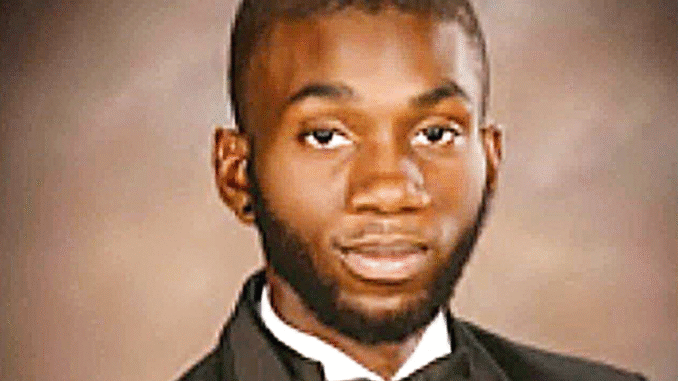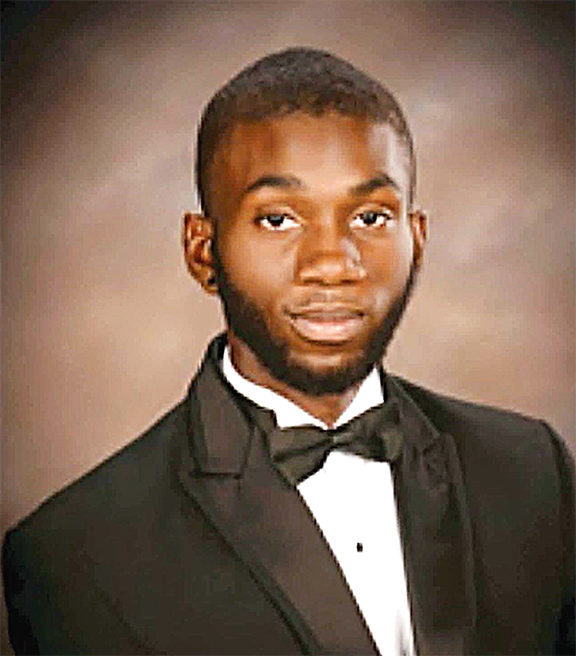
By Edelia J. Carthan, Ed.D.,
Contributing Writer,

The death of 21-year-old Demartravion “Trey” Reed, a student at Delta State University, continues to raise urgent questions after authorities ruled his death a suicide. Reed was discovered hanging from a tree near the campus pickleball court just after 7:00 a.m. Monday, September 15, sending shockwaves through the university community and beyond.
The Discovery and Initial Findings
Police say Reed’s body was found shortly after 7:00 a.m. near the athletic facilities on Delta State’s Cleveland, Mississippi campus. The Bolivar County Coroner reported no signs of foul play at the scene.
Wednesday, September 17, the Mississippi State Medical Examiner’s Office conducted an autopsy, ruling Reed’s death a suicide by hanging. However, toxicology results remain pending and are expected to take up to four weeks.
Despite the incomplete findings, authorities announced the suicide ruling within days. For Reed’s grieving family, the speed of the conclusion felt premature—and deeply unsettling given the painful racial history of Black men found hanging in Mississippi.
Family Raises Concerns Over Communication
Tuesday, September 16, the family, who lives in Grenada County, held a press conference with their attorney Vanessa J. Jones of the Jones Law Firm. At that time, Jones said the family had received conflicting reports from the Delta State University Police and the Grenada County Sheriff’s Office and were not initially told the truth about the circumstances.
Jones further stated that the head of Delta State University had not contacted the family directly. The family expressed frustration that much of their information came at the same time as the public, through social media and news reports, instead of from the university itself.
Press Conference: Authorities Admit to Video Evidence
During a press conference Friday, September 19, campus police and investigators confirmed the existence of video footage connected to Reed’s death. Officials did not release details about what the footage shows or when it was recorded.
Civil rights attorney Ben Crump, now representing Reed’s family alongside Jones, immediately called for transparency:
“If there is video evidence, the family has a right to see it. Peace will only come when every truth is revealed.”
Crump also announced that Reed’s family will pursue a second, independent autopsy funded by the Colin Kaepernick “Know Your Rights Camp.”
“Trey’s death evoked the collective memory of a community that has suffered a historic wound over many, many years and many, many deaths,” Crump said. “Peace will come only by getting to the truth. We thank Colin Kaepernick for supporting this grieving family and the cause of justice and truth.”
Community Raises Questions
Community activist Marquell Bridges also spoke out on social media, questioning the speed of the investigation and the circumstances of Reed’s death:
“If you want my opinion, if you want to know what I think solely, just my personal perspective, I believe Trey Reed was murdered,” Bridges wrote. “He was killed and placed on that tree based on the facts: the autopsy report said he had no marks or bruising around his neck. Strange for a hanging death, and more commonly seen in a manual strangulation death.”
Statements from Officials
Cleveland Police Chief Travis Tribble said the investigation remains open pending toxicology results, but stood by the preliminary ruling:
“Our thoughts and prayers remain with Reed’s family and friends during this very difficult time. We want to encourage anyone who is struggling to reach out for help.”
Mississippi Department of Public Safety Commissioner Sean Tindell condemned “rumors” circulating online, defending the work of investigators and Delta State leadership.
Governor Tate Reeves released a statement calling Reed’s death “a tragedy” and highlighted the candlelight vigil where hundreds of students, faculty, and community members—Black and white—gathered in unity. But Reeves criticized the skepticism voiced online:
“It represents a sad state of affairs in today’s social media–driven world… but it doesn’t represent today’s Mississippi.”
What Comes Next
The FBI and U.S. Attorney’s Office have been given access to investigative materials, and the family is awaiting results from the independent autopsy. Attorneys Jones and Crump insist that transparency—including showing the family the video footage—is essential for justice.
For Reed’s loved ones, unanswered questions remain. The community’s demand is clear: no conclusion without complete truth.

Be the first to comment